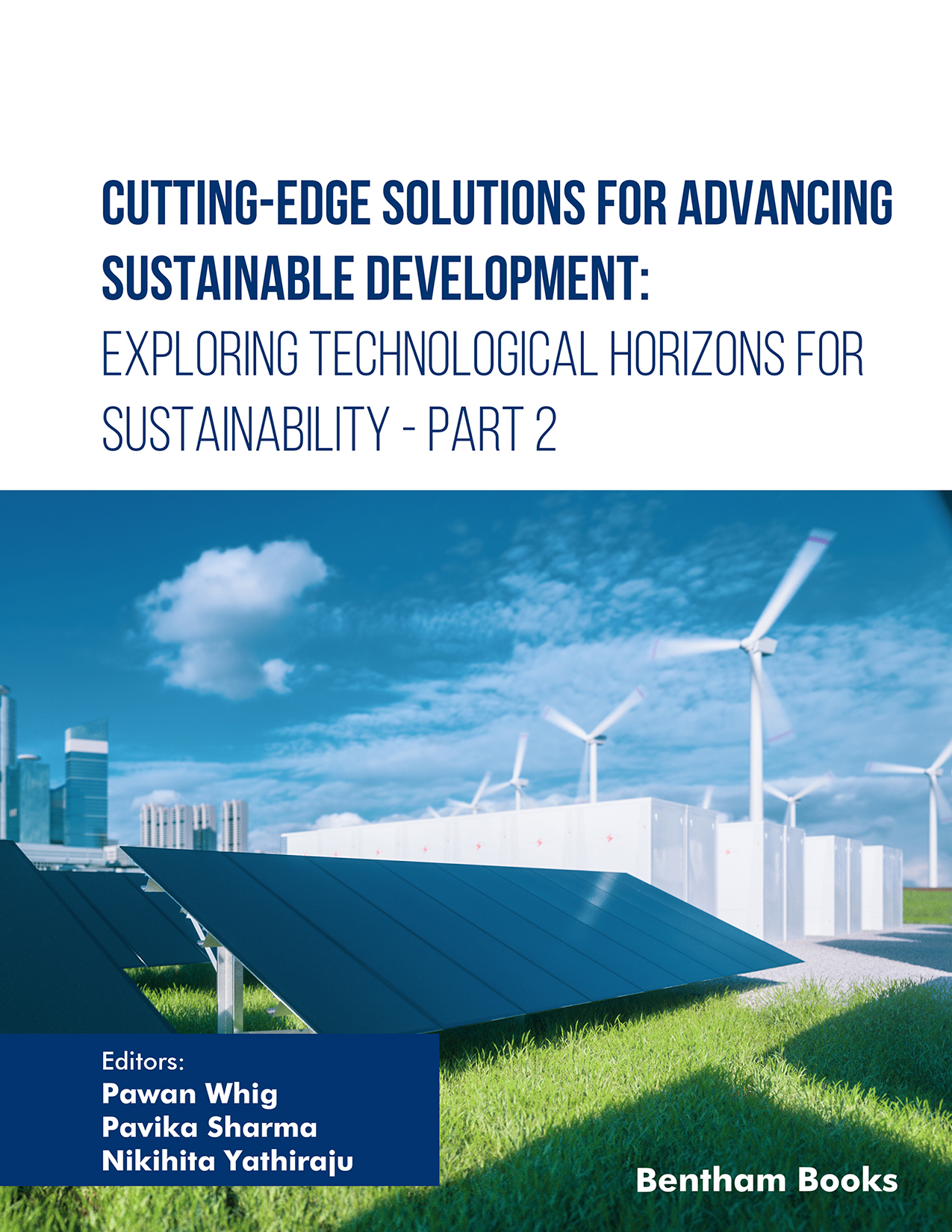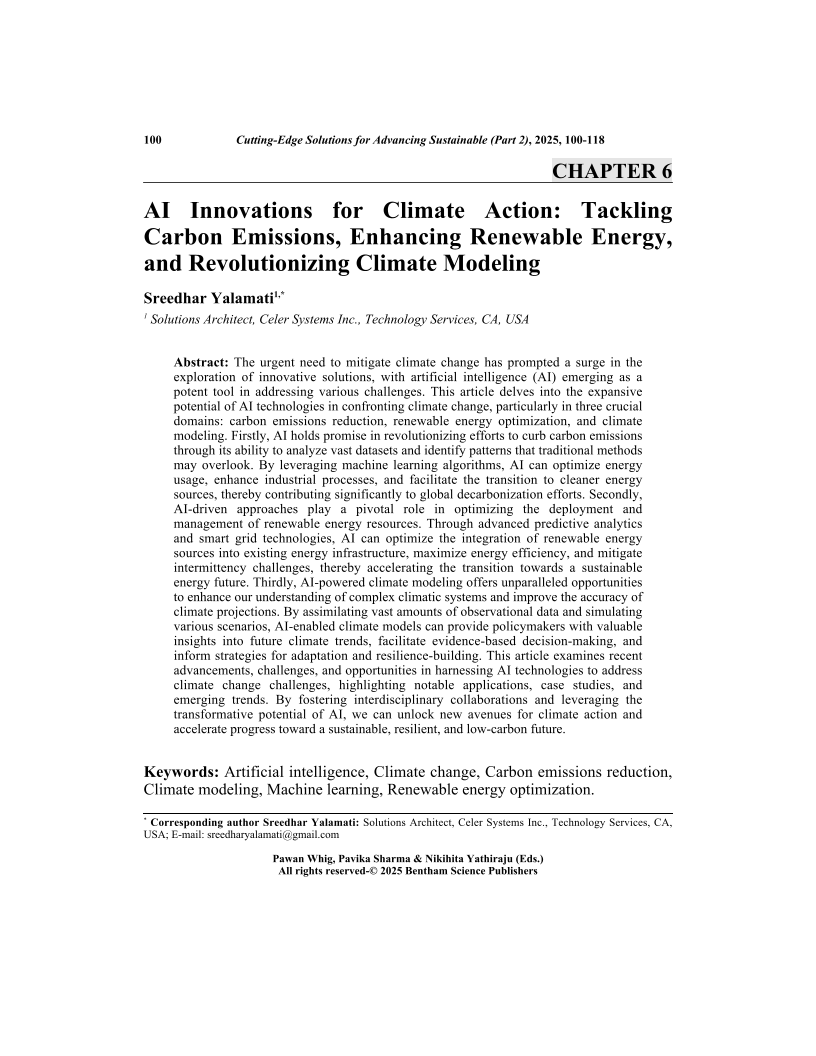AI Innovations for Climate Action: Tackling Carbon Emissions, Enhancing Renewable Energy, and Revolutionizing Climate Modeling

- By Sreedhar Yalamati1
-
View Affiliations Hide Affiliations1 Solutions Architect, Celer Systems Inc., Technology Services, CA, USA
- Source: Cutting-Edge Solutions for Advancing Sustainable Development: Exploring Technological Horizons for Sustainability - Part 2 , pp 100-118
- Publication Date: April 2025
- Language: English
AI Innovations for Climate Action: Tackling Carbon Emissions, Enhancing Renewable Energy, and Revolutionizing Climate Modeling, Page 1 of 1
< Previous page | Next page > /docserver/preview/fulltext/9789815322408/chapter-6-1.gif
The urgent need to mitigate climate change has prompted a surge in the exploration of innovative solutions, with artificial intelligence (AI) emerging as a potent tool in addressing various challenges. This article delves into the expansive potential of AI technologies in confronting climate change, particularly in three crucial domains: carbon emissions reduction, renewable energy optimization, and climate modeling. Firstly, AI holds promise in revolutionizing efforts to curb carbon emissions through its ability to analyze vast datasets and identify patterns that traditional methods may overlook. By leveraging machine learning algorithms, AI can optimize energy usage, enhance industrial processes, and facilitate the transition to cleaner energy sources, thereby contributing significantly to global decarbonization efforts. Secondly, AI-driven approaches play a pivotal role in optimizing the deployment and management of renewable energy resources. Through advanced predictive analytics and smart grid technologies, AI can optimize the integration of renewable energy sources into existing energy infrastructure, maximize energy efficiency, and mitigate intermittency challenges, thereby accelerating the transition towards a sustainable energy future. Thirdly, AI-powered climate modeling offers unparalleled opportunities to enhance our understanding of complex climatic systems and improve the accuracy of climate projections. By assimilating vast amounts of observational data and simulating various scenarios, AI-enabled climate models can provide policymakers with valuable insights into future climate trends, facilitate evidence-based decision-making, and inform strategies for adaptation and resilience-building. This article examines recent advancements, challenges, and opportunities in harnessing AI technologies to address climate change challenges, highlighting notable applications, case studies, and emerging trends. By fostering interdisciplinary collaborations and leveraging the transformative potential of AI, we can unlock new avenues for climate action and accelerate progress toward a sustainable, resilient, and low-carbon future.
-
From This Site
/content/books/9789815322408.chapter-6dcterms_subject,pub_keyword-contentType:Journal -contentType:Figure -contentType:Table -contentType:SupplementaryData105

